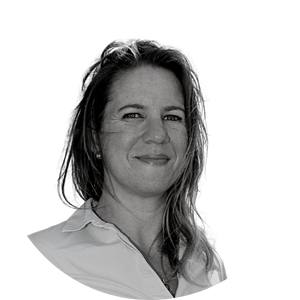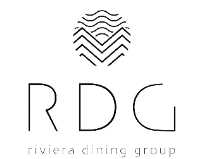
INTERVIEW - MARINE GIRON-GALY, CHIEF BRAND OFFICER, RIVIERA DINING GROUP: “HOSPITALITY IS AN ABSOLUTELY NATURAL EXTENSION OF OUR BUSINESS, AND ONE THAT WILL MAKE SENSE IN THE FUTURE“ (États-Unis)
A glimpse into the resounding success of a restaurant group founded by two French entrepreneurs in Miami, culminating in the opening of its first hotel brand, Casa Neos. |
 |
INTERVIEW - MARINE GIRON-GALY, CHIEF BRAND OFFICER, RIVIERA DINING GROUP: “HOSPITALITY IS AN ABSOLUTELY NATURAL EXTENSION OF OUR BUSINESS, AND ONE THAT WILL MAKE SENSE IN THE FUTURE“ (États-Unis)
A glimpse into the resounding success of a restaurant group founded by two French entrepreneurs in Miami, culminating in the opening of its first hotel brand, Casa Neos. |
Catégorie : Amérique du Nord et Antilles - États-Unis - Économie du secteur
- Interviews et portraits
- Ouvertures d'hôtels - Interviews
Interview de Vanessa Guerrier-Buisine le 03-07-2024
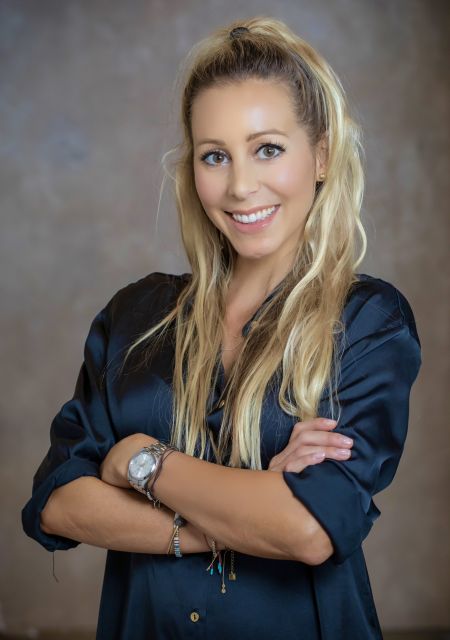 Marine Giron-Galy is Chief Brand Officer of Riviera Dining Group
Crédit photo © Riviera Dining Group
To mark the launch of Casa Neos, the group's first hotel property, which opened a few days ago in Miami, Chief Brand Officer Marine Giron-Galy opened the doors to the refined world of Riviera Dining Group. How have they managed to fuse different cultures to create iconic venues like Mila and Casa Neos in Miami? How have they managed to maintain French know-how and standards of excellence while ensuring exponential growth?
With passion and determination, Marine Giron-Galy reveals, exclusively in Journal des Palaces, the genesis, DNA, challenges and future ambitions of Riviera Dining Group, which is both a human adventure and a made-in-France success story.What is the genesis and DNA of Riviera Dining Group?Grégory Galy, founder and CEO of Riviera Dining Group, was CEO of Fig&Olive in New York. He had a dream of setting up his own group and running his own business. For my part, I worked in the perfume industry, in particular for the Mane group. I oversaw several markets, in marketing and development in Europe.
We shared this vision of a restaurant that would be both elegant and welcoming. A place where guests would feel at home, while being transported, and where all the elements would be considered for a multisensory experience. The idea was to create something unique. Grégory then found a very risky location in Miami to give birth to our first restaurant, Mila.
The Riviera Dining Group emerged, with five executives from Cannes and the French Riviera. Around Grégory, our CEO, Fabien Guardiola is our chief financial officer, Michael Ridard our chief sales officer, Michael Michaelidis our head of culinary, and I am chief brand officer. Robert Blasi, our chief people officer, has since joined us. He's a key player, given the speed at which we're growing.What can be found in the Riviera Dining Group (RDG) properties?We come from the French Riviera, the Mediterranean. There, it's all about enjoying the moment, sharing dishes, using very pure and very simple ingredients, but really tasty. Mila is based on Mediterranean-Asian, “Mediterrasian” cuisine because these two culinary cultures share the same foundations. We advocate the quality of the products, it's very minimalist.
We have personalised everything, from the signature perfume that I designed, first for Mila and then for the group's other restaurants, to the atmosphere, the music, the importance of the plates…
As well as a Mediterranean identity, we have built the Riviera Dining Group's identity around operational and quality standards. Standards of service, branding, image, etc. Our strength is the Mediterranean because that's where our roots lie. Every concept we create will be imbued with this hospitality. Because the sense of service, the sense of detail, is quite French. As is the sense of cuisine, of technicality, of the quality of products…What happened after the opening of Mila, your first property?We opened AVA MediterrAegean, a rather Greek, Cycladic concept (editor's note: echoing the Greek origins of chef Michaelidis). This restaurant is located in Winter Park, a rather luxurious area of Orlando, a very charming little town, the most European in Florida.
Last year, we had the opportunity to take over Bâoli under a management contract. In six weeks, we overhauled the entire brand image, and gave the kitchen and interior design a new identity, before reopening at the end of March. Our role was to put Bâoli back on the map. We went back to the original story of Bâoli, whose meaning evokes the water reservoir in Indonesia, to feed the village. We built bridges so that we could have a coherent history while imbuing the property with our standards.
Not only that, but we are also opening Claudie in Brickall, the city district of Miami. Claudie is a concept inspired purely by the south of France, with analogies to Mougins. We'll be offering pissaladières, squash blossoms and courgette blossom fritters… All in a very feminine and luxurious setting, but without ostentation.What experiences would you like your guests to have within your different brands? What memories would you like to leave with each of your guests?The guiding principle is to transport guests into a completely 360° experience where every detail is thought through. When guests enter one of our homes, they recognise the olfactory identity that we have developed. You are immediately transported by this scent, which multiplies as soon as you enter, in the lift, in the corridors, with the candles, in the toilets, on the soaps and creams.
Then we have what we call service standards. From the way reservations are taken, to the way the brand is introduced, in every experience.
We have restaurants, so we want the culinary experience to be beyond reproach. That's Chef Michael's mission. Then the plates play their part. Visually, the dishes are beautiful and good. Every time guests come back, there can't be a single disappointment. Our aim is excellence.
We're not saying we're excellent, but that's what drives us every day. And to say that this is what we have to achieve is excellence so that our guests are never disappointed.What methods do you use to ensure that your teams adopt this standard, this quality of service, and do so consistently?Training, training, training. It's all about constant training, training within the restaurants, and beyond, in terms of culture. All our teams need to be imbued with the company's culture, working together, striving for excellence, having passion, having integrity. It's very important to have this hospitality and to nurture it within ourselves so that we can pass it on to our guests. We have a brand-new training and development department dedicated to these issues.How do you choose the destinations in which you set up your properties?Our motto is “location, location, location”. This doesn't mean that we choose locations that are necessarily attractive. When we chose the location for Mila, the place and the address weren't selling at all. We wanted to open a large restaurant with a luxury positioning, but the location was mass market.
On the other hand, the planned location wasn't on the street, it was on the third floor, it was a rooftop, where there was enormous potential for development and where we could really create a destination. We were one of the forerunners, a bit adventurous, who took the plunge into the district. Since then, the district has undergone a redevelopment phase, which is very good for us. It benefits everyone and many restaurants.
We choose locations with a view to their development potential. The brand will then become so strong that it will attract guests to itself.How do you determine the locations for your other brands?For our other brands, the approach is different. Our aim is to respect the vision behind each brand. Ava, for example, is a much more community-based, family-oriented brand, like a local restaurant. With this in mind, we're looking at West Palm Beach to develop Ava.What are your plans for future openings?We'd like to continue developing the Mila brand, but we won't be opening at random. We need to move into markets that are strong enough to attract this type of guest. From now on, we will be focusing on leading markets with the Mila brand, such as Dubai, New York and Las Vegas, which can absorb large volumes.
We also have plans to open a modern Japanese steakhouse in Midtown, Miami in 2026.Could you talk about the club system you have launched?We opened a Members' Club to provide an extra service to our guests. This is a trend that is developing enormously in the United States, between New York and Miami. The idea was to create the first Members' Club, which opens up a circle of restaurants and day and night destinations. Our members benefit from different experiences within the same group.
The majority of our properties include exclusive areas reserved for members and their guests only. These are more than just VIP rooms; they are completely isolated, closed spaces, with a completely autonomous bar, their own ecosystem, manpower, crockery and visual identity.Casa Neos is your first hotel project, and will open in summer 2024. Could you tell us more about this project?We worked for two years on this project, which is one of the biggest we've ever done, covering 30,000 m². We really wanted to bring in all the Mediterranean flavour that we are so attached to. Casa Neos is located on the Miami River, in a more urban area that has yet to be explored, but there is enormous potential there, particularly thanks to the possibility of yachts arriving here. This fits in perfectly with the Miami lifestyle.
We have created four experiences here. On the ground floor, we have created a beach club, with a swimming pool and an indoor restaurant with an open kitchen for members. On the first floor, a bar, and restaurant will also cater for regular guests. On the second floor, we have created a boutique hotel to enable our guests to stay longer and feel at home. On the rooftop, we will be unveiling a Moroccan restaurant, Noora, in the autumn. It will offer a spectacular view over the rooftops of downtown Miami.
Through our design, we are transporting our guests to Mykonos and Bodrum, using very noble materials. We respect our essence, our mantra, to always create entirely unique, 360° experiences.How have the rooms been designed?The suites are spacious and include space for entertaining guests, with a dining table… and balconies equipped for relaxing.
This is our first step into the hotel industry, so we started cautiously with four suites; Gaia, Terra, Aura, and Luna. Each tells a story, each linked to the fundamental elements of nature.What are your ambitions in the hotel industry and what kind of imprint will your guests find in your hotels?We started with these suites at Casa Neos, and we want to exploit more keys, more rooms in our next concepts.
The hotel industry is an absolutely natural, organic extension that makes sense for the future. The Mila brand is very strong in terms of design and imprint. So we're already exploring a Mila Hotel. The Mila brand is really inspired by the Japanese philosophy, Wabi Sabi, which means finding perfection in imperfection. We favour tribal elements, noble materials and warm, earthy colours: terracotta, beige, grey, charcoal, stone, rope and so on.
The Hotel Mila will be an extension of the restaurant, which will remain one of the hotel's major levers, with this olfactory imprint that is highly identifiable everywhere.
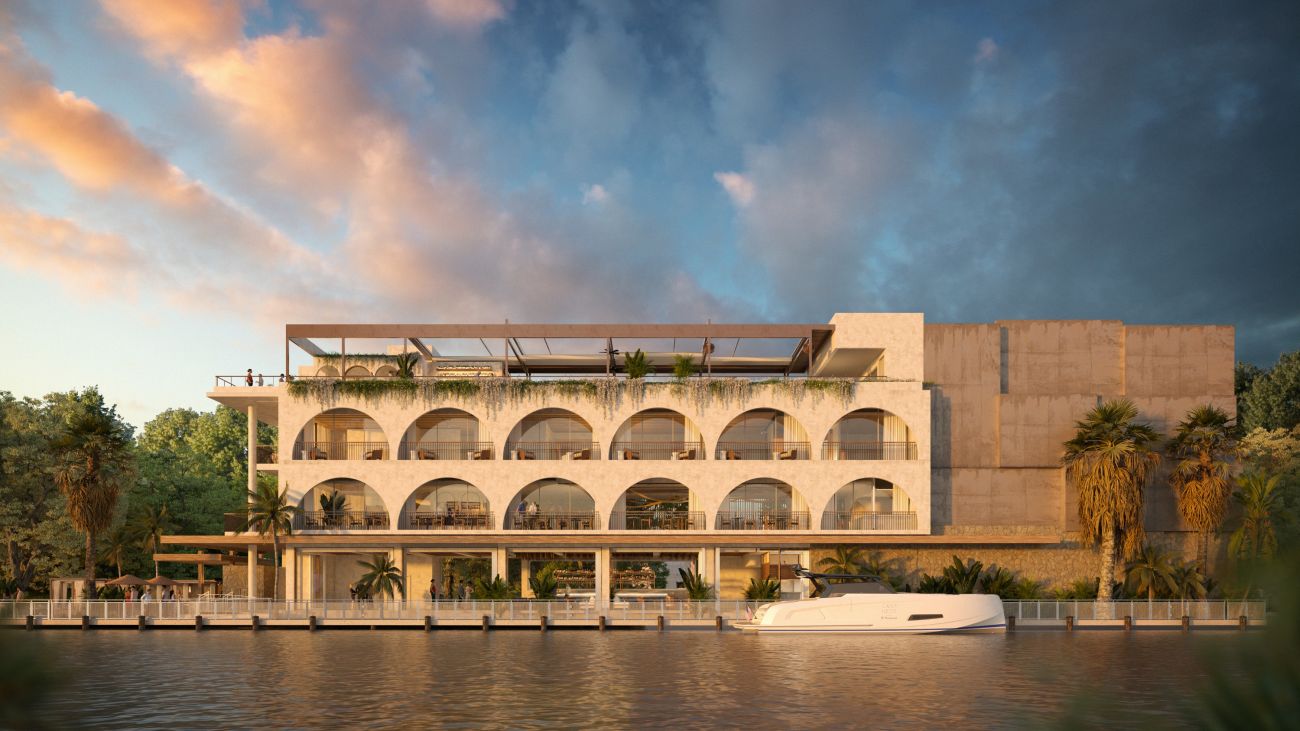 Casa Neos is the first hotel in the Riviera Dining Group and is located on the Miami River
Crédit photo © Riviera Dining Group
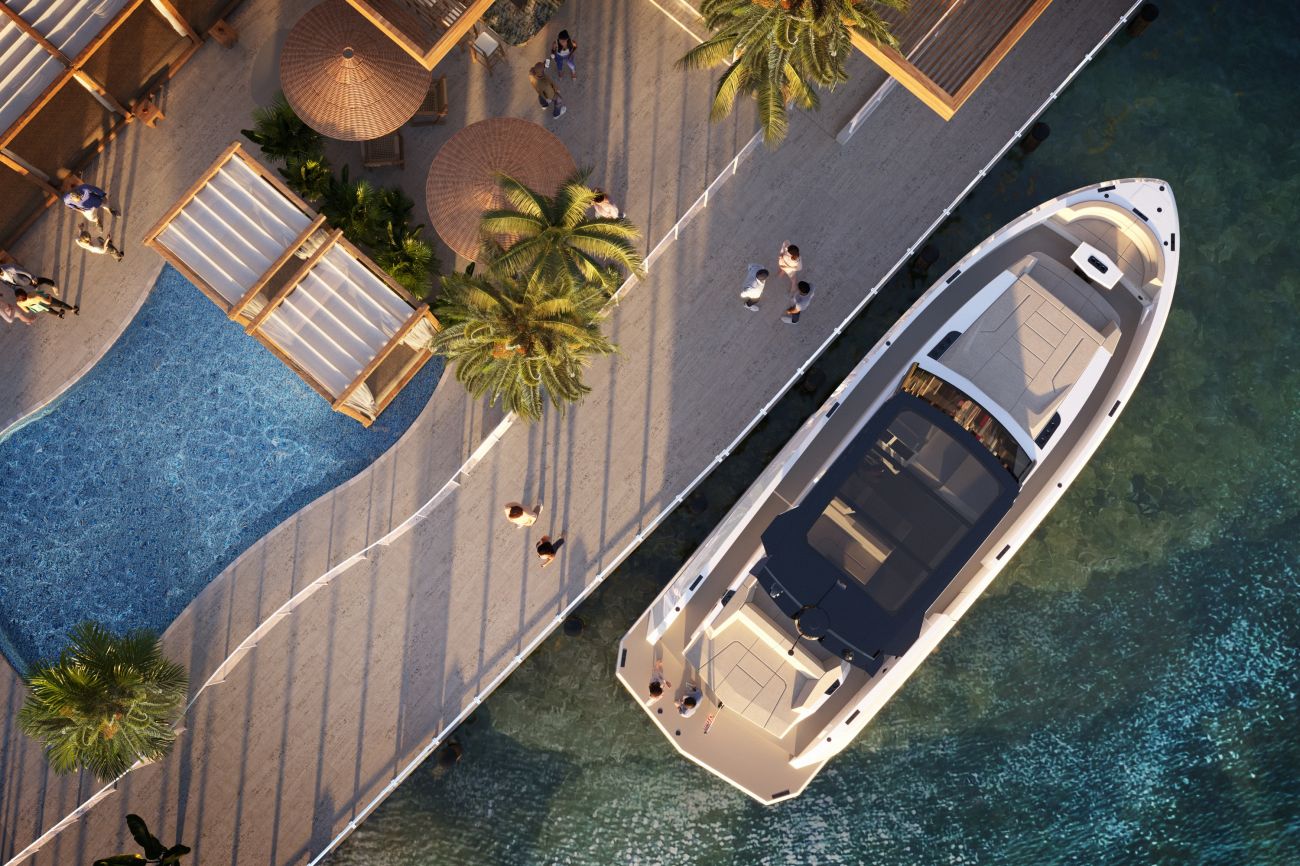 One of the great advantages of this boutique hotel is its immediate accessibility to the yachts that populate Miami
Crédit photo © Riviera Dining Group
 Casa Neos includes a beach club, an essential part of Miami lifestyle
Crédit photo © Riviera Dining Group
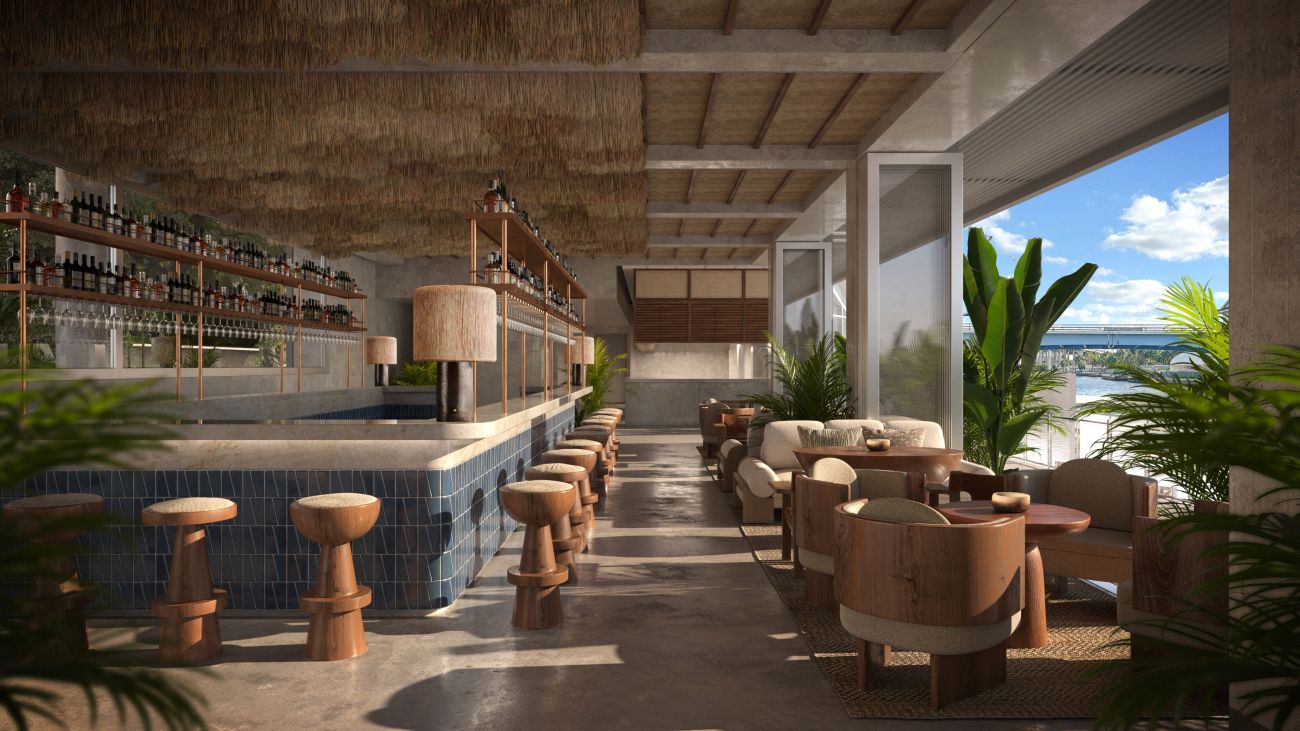 The interior of the Casa Neos Beach Club is as stylish as its exterior
Crédit photo © Riviera Dining Group
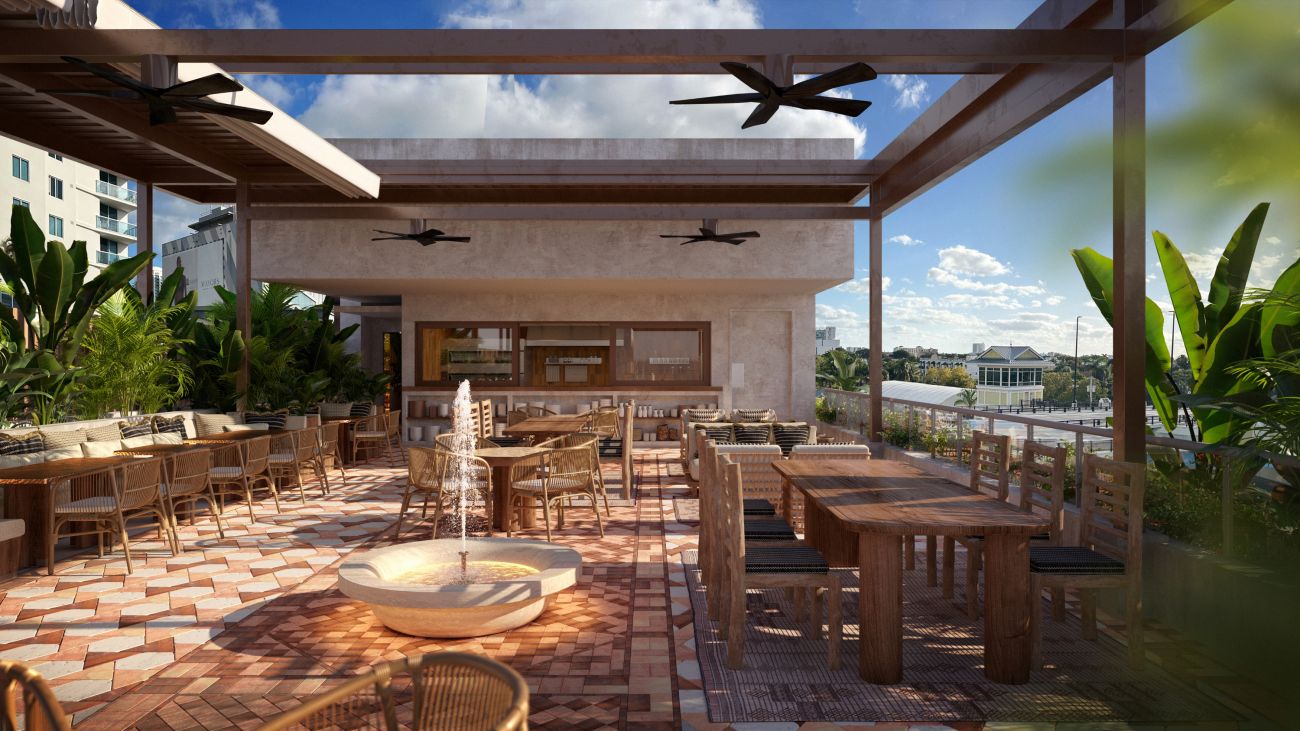 Like Mila, the RDG's flagship restaurant, Casa Neos has its own rooftop
Crédit photo © Riviera Dining Group
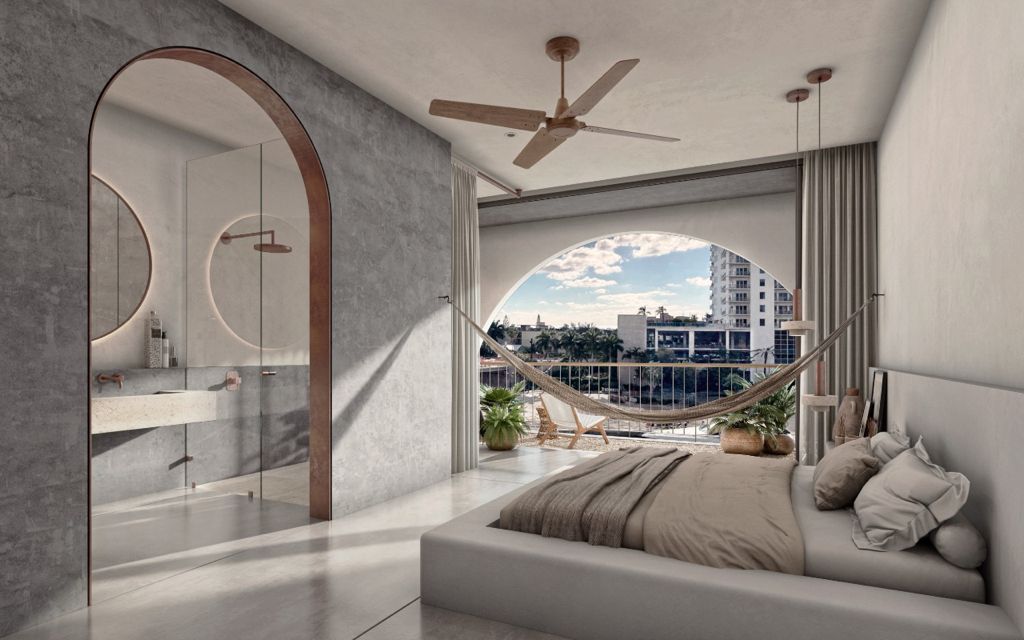 The boutique hotel includes 10 suites
Crédit photo © Riviera Dining Group
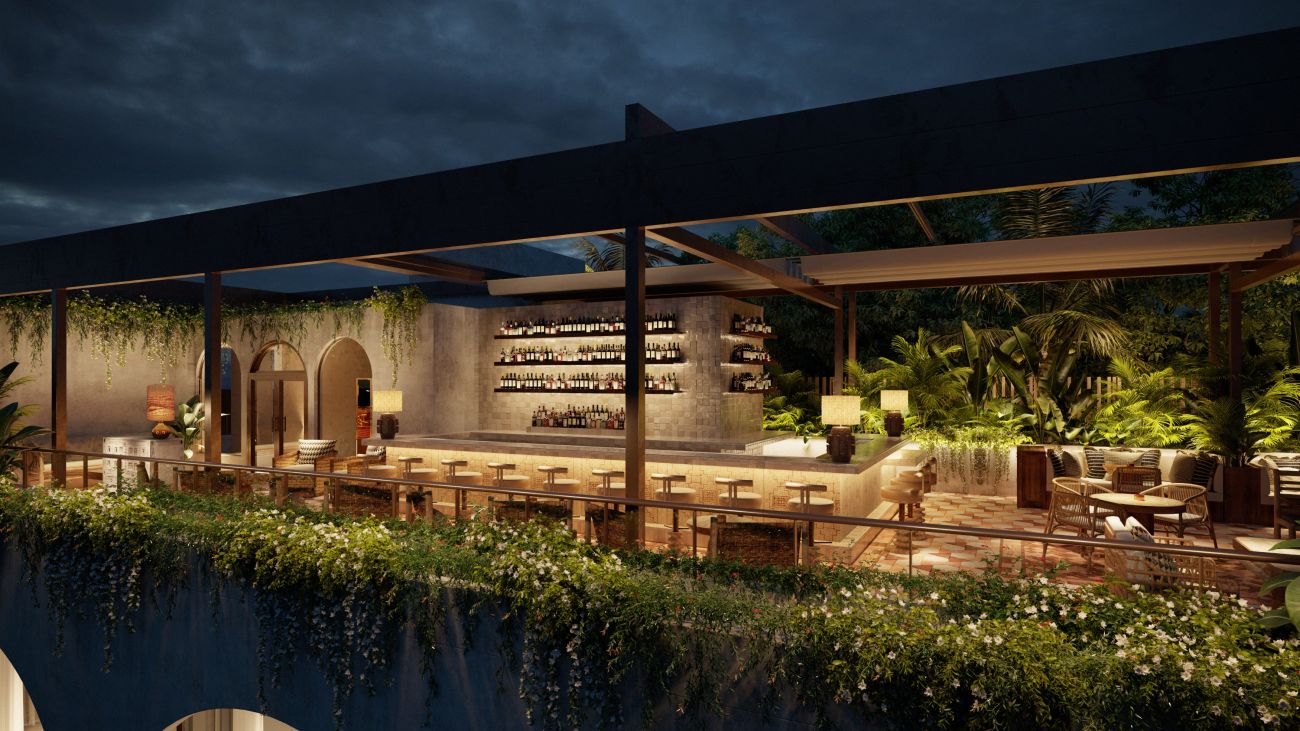 Noora is the gourmet Moroccan address of Casa Neos
Crédit photo © Riviera Dining Group
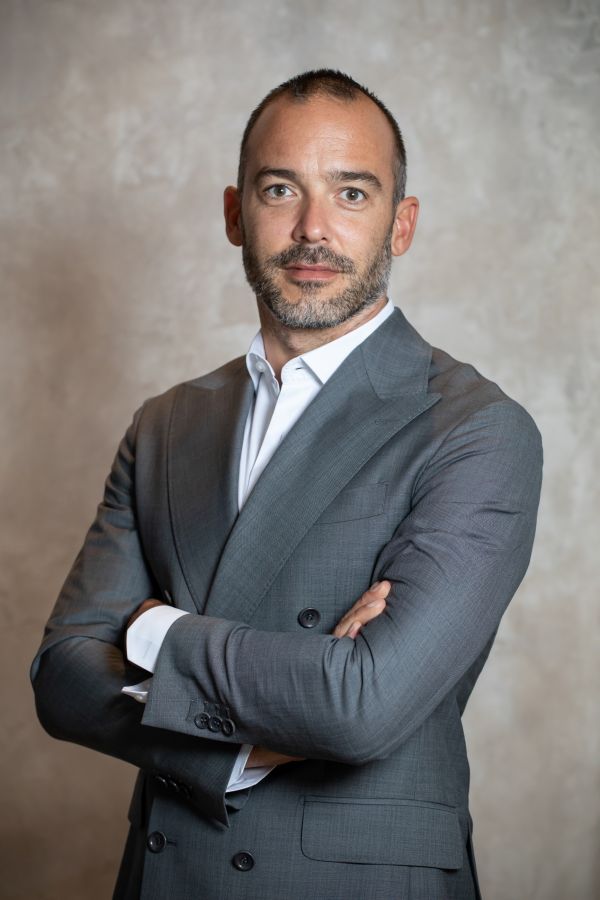 Riviera Dining Group is the fruit of the shared vision of Marine Giron-Galy and Grégory Galy, the group's CEO
Crédit photo © Riviera Dining Group
|
|





